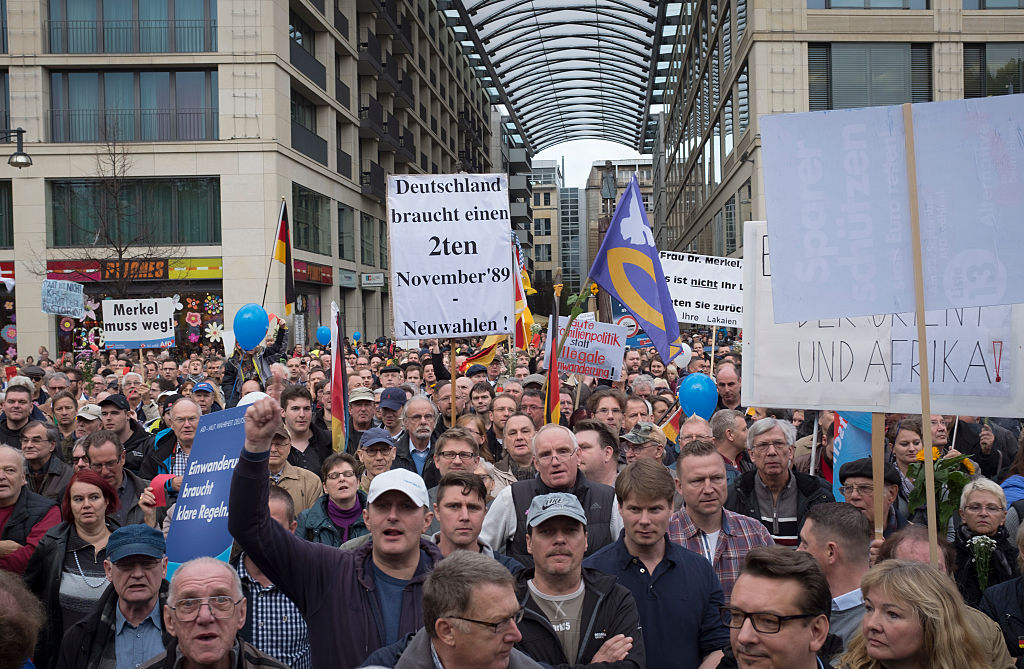Europeans awakening to the reality of Donald Trump’s victory will be asking themselves what it means for them. The obvious answer is that US policy and attitudes towards European countries and the European Union dramatically change.
The less obvious but more poignant answer is that his win is a glimpse of Europe’s future.
Trump won because he painstakingly built a multiracial conservative populist coalition. That coalition is rooted in America’s working class — the people who never graduated from university and perform the hard labour on their feet and with their hands that undergirds the modern economy.
This is the demographic that fuels Europe’s populist Right. Look at any poll in a recent election and you will see the same thing: voters with less education and moderate incomes who are classified as workers are the foundation of parties like Austria’s FPÖ, France’s National Rally and Sweden’s Sweden Democrats.
America’s first-past-the-post, majoritarian system, however, means that that element cannot stand alone in elections. It must join with other elements which, in much of Europe, would be separate parties.
Trump’s genius was blending this populist element with the old Right’s social conservative and economically liberal market-oriented elements. This combination brought groups that in Europe would form the basis for Christian Democratic or economically market-focused parties like Netherlands’ VVD into his new Republican Party.
Europeans who have semi-majoritarian electoral systems have moved in this direction too. Georgia Meloni’s centre-right four-party coalition effectively creates a Trumpian coalition within the context of Italy’s multi-party, personality-driven politics.
Hungary’s Viktor Orbán is the master of this. His Fidesz-KDNP alliance slowly absorbed other parties that stood in these spaces, uniting them into a powerful single entity. That rather than the policies that have earned him the scorn of the Brussels elite is why he strides across Hungarian politics like a Colossus.
That elite still tenuously holds power in much of continental Europe, but it is quickly cracking under the strain. Centre-right parties must make compromises with the centre-left that many of their voters dislike in order to maintain a cordon sanitaire on populist parties.
Over time, this increases support for the very elements these unholy alliances were meant to diminish.
This approach will break soon in both Germany and France.
The Christin Democratic Union/Christian Social Union (CDU/CSU) looks set to win the next Bundestag election but will have to make friends with either the Social Democratic Party (SPD) or the Greens to keep the right-wing Alternative for Germany (AfD) out. That will pull them to the Left, culturally and economically, which will cause their more right-leaning voters to look again at the AfD.
Now 2025 may be their last hurrah, especially if AfD reforms itself as many populist parties elsewhere have and purges its radical elements in favour of serious men and women committed to govern seriously.
France is heading for a political reckoning of epic proportions within the next three years. French Prime Minister Michel Barnier already de facto relies on the tacit support of Le Pen and her deputies.
The more this becomes apparent, the more the remnants of the once powerful Republicans will wonder why a more formal alliance is out of the question.
Similar coalitions already exist or have existed in the Scandinavian countries. The result has not been destructive; it has helped maintain democratic legitimacy in the face of massive challenges.
The question for the thoughtful European, then, is not how to fight Trump and what he stands for. It is how to channel the best of this rising power into a renewed centre-right political force.
That force would decisively break with the old order that founded the Right on the economic elites. Many of the wealthiest Europeans will still be on the Right, but they will no longer dominate it.
Instead, they will share political power with an authentically conservative, working-class element whose ancestors once voted for the centre-left.
This coalition will reject Green doomsaying in favour of an optimistic commitment to economic growth. It will reject the elite’s desire to balance Europe’s books on the backs of its workers and ensure that the fruits of that growth are widely spread.
This coalition will respect the communal aspects of individual life. It will recognise that humans are more than producers and consumer: they are mothers and fathers; believers and unbelievers; people who are proud of their cities and their nations.
This means rejecting the idea of an ever-closer union that fails to respect the real diversity that exists within its component part. It is consistent, however, with the creation of a real union that does centrally what is in the interest of all states and leaves most decisions on important matters to the nations.
It took Trump nearly a decade to remakes American politics in his image. A decade from now, Europeans are likely to look up and see he and his European acolytes have remade Europe, too.





Forget the popular vote, how America’s Electoral College will choose the winner